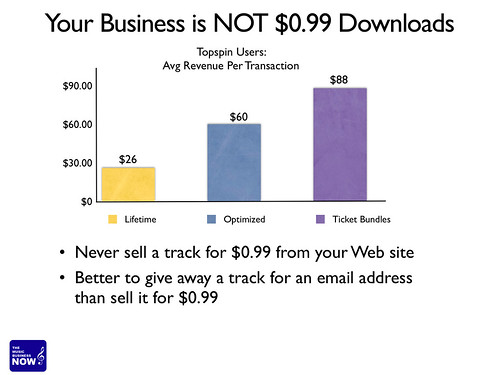from the please-shut-up dept
I've been noticing a really silly trend lately, of copyright maximalists trying to "debunk" people who actually understand the economics of content, by trying to sarcastically equate money to content and then saying, "if it's okay to copy content then isn't it okay to copy money?" It's an argument stemming from pure ignorance, mixed with an unhealthy dose of smugness, and we should try to pop this bubble before it goes much further. In order to do so, let's take a look at a picture perfect specimen of this sort of argument from (of course), an IP lawyer (who else?) named James Gannon, who wrote
"How I Learned to Stop Worrying and Love the Copy," all about copying money. It's getting passed around by various copyright maximalists with comments about how "brilliant" it is.
It's brilliant only if you don't understand all of the following: money, economics, copyright, business and value. If you understand
any of those things, you might recognize that the analogy makes no sense. Misunderstand all of them... well, then I can see how this argument might make sense. It's also not a very original argument, because we see it all the time and it's been debunked before. But now that it's rising in popularity, let's dig in a little and see if we can explain how utterly ridiculous the comparison is.
Gutenberg did not invent the printing press so that it would be controlled in the hands a few rich and powerful central bankers who desperately cling to outdated business models. With the advent of digital technologies, everyone can and should be free to copy their own money.
I see what you did there. Of course, here's the key thing: money and content are two totally separate things. We write about content frequently, but we also write about money quite a bit, and in fact, have spent an awful lot of time discussing
what money is, how it
might change and where it's
heading. Traditionally and classically, money is defined as three things: a store of value, a medium of exchange and a unit of account. Content is none of those things. You can't compare the two, because they're nothing alike.
And here's the key point that the "har har copy money durrr" crowd doesn't seem to comprehend.
Money is a scarcity. They used to go on and on about how content was the same as a car ("you wouldn't steal a car") but the switch to using "money" as the example is because enough people have so debunked that argument by explaining the differences between scarce goods and abundant goods that they (mostly) don't even try any more. But by switching to money, they show that they don't understand what they were being taught. They thought people were only focusing on
tangible goods, not
scarce goods in explaining the differences. Tangible goods are scarce, but not all scarcities are tangible goods. Money is a perfect example of that.
Money is scarce. It's not scarce because there are a limited number of
bills. In fact, most money isn't in bill form at all, so that's clearly not it. Money is
scarce because of that first characteristic listed above: it's a
store of value, and money, by itself, doesn't create any additional value. The overall value is a scarcity and the money is a representation of that value. You can print more money, but that creates inflation, because the overall value remains the same. That's not the case with content. Contrary to what some claim, getting more content on the market does not take away value. In a culture where shared culture and shared cultural experiences are highly valued, the fact that you can copy content makes it
even more valuable. It makes it easier to share that cultural experience.
In other words, content can
create new value. Money does not. Money is a store of value. Content is not. Pretending these two things are the same is wrong and will make you look foolish.
Don't get me wrong. I love the bank notes that are created by the Bank of Canada (BoC). In fact, I consider myself to be one of their biggest fans. Even though the BoC will try to stop me if I try to make my own copies of their bills, they should really be flattered.
Imitation is the sincerest form of flattery and I only want to share their work with my friends and family. By allowing me to make copies of their works, my friends might become fans of their currency too. Everyone knows the value of a currency is based on its demand so why not try to get as many fans as possible?
Right, except all of that is simply wrong and shows ignorance of the basic factors of both content and money as described above. When you copy money, you are actually decreasing the value of money. That's not true of content. When you share content with people, you increase the market opportunity for the content providers. That's not true with money. Pretending otherwise is either ignorance or propaganda.
Gannon's piece goes on from there, continuing to pretend that he's sarcastically making a point. It's a really pointless argument, and doesn't make him look particularly intelligent. If he wants to debate actual economics or business models, plenty of us would be happy to do so. Instead, making arguments like this is just silly and doesn't make his point. It just makes him look like he has no real argument, and has to resort to pure sophistry.
Filed Under: business models, content, copying, economics, money, scarcities



